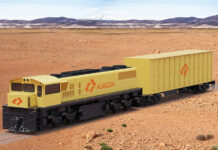Freight operators warn proposed changes threaten industry viability

Australia’s freight operators have expressed concerns that proposals to curtail diesel rebates or mandate transitions to electric or alternative fuels would trigger significant cost-of-living increases and threaten the viability of thousands of small transport businesses.
The warning comes as Climate Change Authority chairman Matt Kean backed calls to overhaul the diesel fuel rebate, suggesting the billions spent annually would be better directed towards electrification.
However, exclusive survey data from Loadshift — a subsidiary of Freelancer Limited (ASX: FLN) and Australia’s largest online marketplace for heavy-haulage transport. — reveals major opposition from those in the freight industry.
Loadshift chief executive Matt Barrie says the survey results reflect deep concern across the industry about policies being developed without understanding operational realities.
“Our platform connects thousands of freight operators every month, from single-truck owner-drivers to medium-sized fleets, working everything from metropolitan deliveries to remote outback runs,” he said.
“What these surveys show is that the overwhelming majority believe current electrification and alternative fuel proposals would devastate their businesses and drive significant consumer price increases.
“These aren’t large mining operations with billion-dollar balance sheets — these are small businesses operating on tight margins, and they’re warning that forced transitions to technologies that aren’t ready, with infrastructure that doesn’t exist, will put them out of business and make everything more expensive for Australian families.”
The two surveys found:
- 93% believe higher trucking costs would increase consumer prices
- 74% say the impact would be definite across “nearly all consumer goods”
- 50% expect consumer price increases exceeding 5%
- 67% say mandatory EV transition would threaten business survival
- 66% oppose EV transitions
- 82% believe government doesn’t adequately understand the industry
Consumer price inflation concerns
An overwhelming 93% of surveyed freight operators believe higher trucking costs from fuel transitions would increase consumer prices, with 74% saying the impact would be definite and widespread across “nearly all consumer goods”.
Only 2% believe it wouldn’t have a noticeable effect on consumer prices.
Freight operators were unequivocal about who would bear the cost of fuel policy changes. Of those operators who could estimate the financial impact, 39% said they would need to increase freight rates by 11% or more to maintain profitability under renewable diesel, with a further 18% estimating increases of 6-10%.
A further 16% said they would need to raise rates by more than 20%. Only 13% believed they could absorb the transition with rate increases below 5%.
When asked specifically about the impact on everyday consumer prices, 50% of operators believe higher fuel costs would add more than 5% to consumer prices, with a further 20% expecting impacts of 3-5% — a significant inflationary shock at a time when cost-of-living dominates political debate.
Only 13% of operators expected consumer price impacts below 3%, while 16% were unsure of the magnitude.
The Loadshift surveys found overwhelming opposition to electric vehicle mandates, with 66% of operators opposing EV transitions (55% strongly oppose, 11% somewhat oppose) and only 13% expressing support (7% strongly support, 6% somewhat support). A further 21% maintain a neutral stance.
In a separate survey focused specifically on net zero transport, 100% of respondents answered “No, not currently” when asked if they had considered transitioning to an EV truck.
Multiple operators warned that electric technology would require additional charging stops on standard interstate runs, with potentially catastrophic impacts on productivity.
For operators servicing remote routes, the challenges are even more acute. The battery weight penalty would compound these problems by reducing payload capacity, forcing more trips to move the same freight volume.
Infrastructure “doesn’t exist”
Operators working regional and remote routes report electric charging infrastructure is non-existent in the areas they service daily.
Even among the 21% of operators who maintain a neutral stance on EVs, infrastructure concerns dominate.
Biofuels face technical and cost barriers
Loadshift’s survey on renewable diesel (HVO) revealed equally concerning challenges, with operators reporting past negative experiences with biofuels.
Technical concerns were widespread, with operators citing reduced range, increased maintenance issues and compatibility problems with modern engines.
Business survival threatened
A devastating 67% of operators said a mandatory transition to electric trucks without sufficient support would threaten their business’s survival, with a further 16% saying it would have a significant impact requiring major changes or downsizing. Combined, 83% say the impact would be severe or significant. Only 6% believed they could manage the transition with adjustments, while 11% were unsure.
A striking 82% of surveyed operators said Australian governments either “overlook and undervalue truck drivers” (46%) or “miss many of our real-world issues” (35%). Only 9% felt governments understand and support the industry adequately (6% “fairly well” with gaps, 2% “very well”, plus 6% neutral/unsure).
Industry seeks practical solutions
Loadshift emphasises that freight operators are not opposed to environmental progress — but they need solutions that are practical, affordable and won’t cripple their businesses or drive inflation.
“The freight industry has consistently adopted new technology when it makes operational and economic sense,” Mr Barrie said.
“But forcing transitions to technologies that aren’t ready, with infrastructure that doesn’t exist, using mandates rather than incentives, will destroy small operators and ultimately hurt everyday Australians through higher prices.”






















